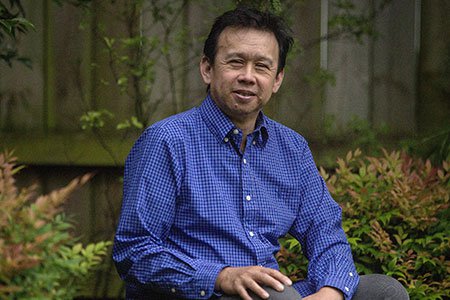What to do with your KiwiSaver account while studying
By MAS Team | 18 July 2022
By MAS Team | 18 July 2022
While you’re studying, the focus is often on getting through the next few years of university, celebrating birthdays and graduation milestones, navigating the rental market, and beginning careers. Preparing for retirement isn’t really on your radar, but should it be?
At MAS, we encourage students to think about building their KiwiSaver balances early. Retirement may seem like a very distant future, but there are lots of reasons why saving early will pay off in the long run.
Compound returns are one of the best reasons to start saving while you’re young. The earlier you start adding to your KiwiSaver savings, the more powerful your compounding returns will become.
Compound returns means earning returns on your returns. When you make returns on your KiwiSaver balance, that money is reinvested, which then earns even more returns on top of the new total amount. Essentially, your money starts to make more money, all on its own. Compound returns add up considerably over the years, so the earlier you invest in a KiwiSaver scheme, the better.
All investing comes with risk, but the power of compound returns means starting early could make a huge difference to your balance when it comes time to buy your first house or retire. The younger you are, the better position you’re in to weather financial storms.
As a student, a big advantage is that you have time on your side - the more you contribute at a younger age, the more your balance is likely to grow over time.

It’s not often you have the chance to pocket some free money, but the Government contribution to KiwiSaver is about as close as you can get.
For each dollar you contribute to your KiwiSaver scheme fund, up to a cap of $1,042.86 per year, the Government will add an extra 50c. That’s a 50% return on investment, gaining you up to an extra $521.43 per year - now that’s a great incentive to contribute this amount.
There are a couple of different ways to make contributions. If you haven’t been making regular contributions, you can still make voluntary payments to your KiwiSaver account at any time, to make the most of this Government contribution before the annual deadline of 30 June.
If you have a part-time or casual job while you’re studying, and you’re over 18, your employer must also contribute a minimum of 3% of your salary to your KiwiSaver account. In most cases, this is an additional 3%, which means you’re essentially getting a 3% pay rise on top of your salary, which goes straight into your KiwiSaver account. Not bad, right?
If you earn more than the minimum wage, some employers offer a “gross remuneration” package that takes the 3% employer contribution out of your salary or wages, so your KiwiSaver scheme contributions form part of your pay rather than being on top of your pay.
Even if you’re not currently earning a lot of money, your employer contributions will make a big difference to your KiwiSaver balance over the years. It’s a win-win situation and well worth opting into a KiwiSaver scheme for.

Please note: This article provides general information only and is not a substitute for professional and individually tailored advice. Please speak with a MAS adviser before making investment decisions.
MAS offers a free financial review for Members to make sure their finances suit their life stage and goals. Call 0800 800 627 to talk to a MAS Adviser.
Medical Funds Management Limited is the manager and issuer of the MAS KiwiSaver Scheme. The Product Disclosure Statement for the MAS KiwiSaver Scheme is available here.

7 December 2020
Even the most diligent savers among us could still be missing out on financial security without a plan to ensure they are financially resilient. It's essential to have a personalised financial plan to maintain - or establish - financial resilience.

1 July 2020
For MAS's Money Advice series, Palmerston North-based dentist Dr Allan Young shares what he wished he knew about money when he was younger, for the benefit of young professionals.

24 September 2019
The oldest Baby Boomer in the flower-power generation bracket is 72, while the youngest members of Generation Z are just four years old. The money habits and priorities between these generations are very different.